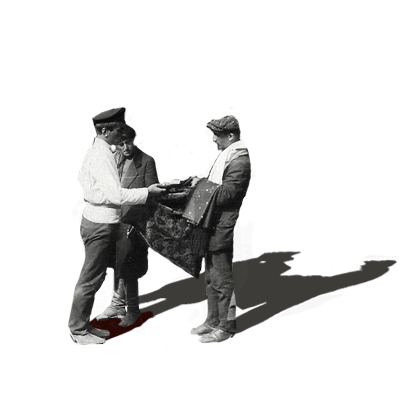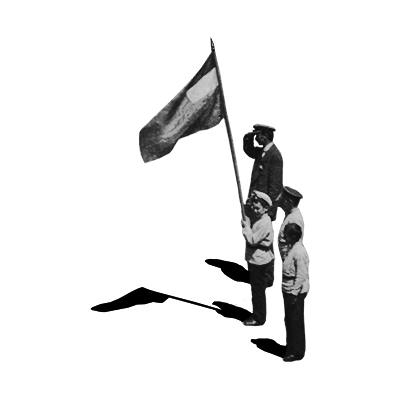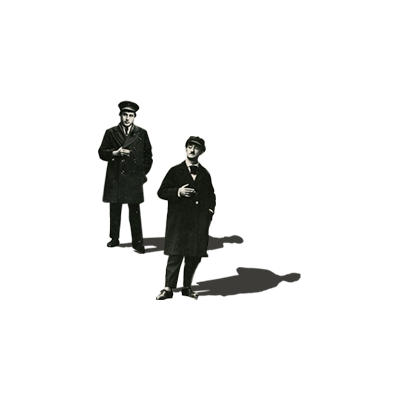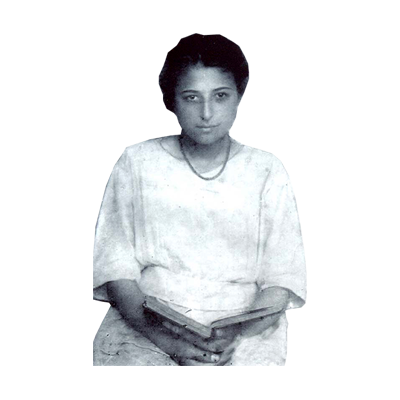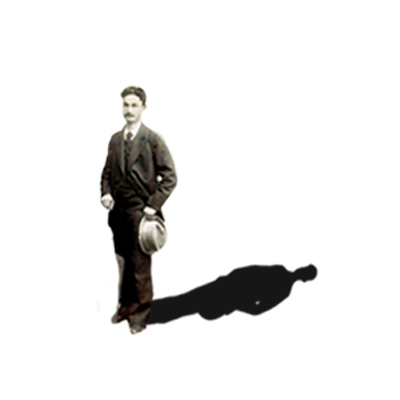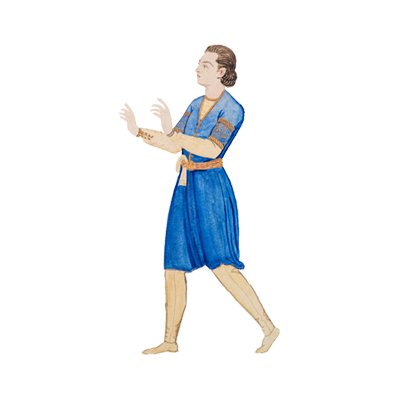



CareerCareer
Aleksander AkhmeteliAleksander Akhmeteli


Lavrentiy BeriaLavrentiy Beria
1876 - 19401876 - 1940
First Secretary of the Georgian Communist Party
1907 Y.
Taso Rostomashvili and Sandro got married and soon they had a first child, Shalva
1908 Y.
Sandro enters in a faculty of law in St. Petersburg. The lawyer's education allows him to be permanently involved in a social-political life. Simultaneously, he writes reports on theatre in Russian press.
1910 Y.
Sandro’s first directorial debut was created in Kvemo Machkhana. Here he staged a play of Aleksander Sumbatashvili-Iujini - "Betray". Sandro created actors’ make-up and costume models himself. The working process for the performance lasted for about 2 months, while the performances in Russia were created in a week.
1918 Y.
Akhmeteli is actively involved in political issues. He represented a Radical-Democrat Peasant Party in Constituent Assembly, along with Tedo Sakhokia, Shio Aragvispiri and Davit Chikovani. On May 26, 1918, as a politician, he signed the Act of Independence of Georgia.
1919 Y.
Sandro Akhmteli staged Dimitri Arakishvili's opera - "Folk-tale about Shota Rustaveli", composed by Sandro Shanshiashvili's libretto.
1920 Y.
In “Tbilisi Georgian Theater” he staged one of his prominent experimental work - "Berdo Zmania", which was also created by Sandro Shanshiashvili's play.
1923 Y.
In 1923, Kote Marjanishvili returns to Tbilisi and invites Sandro Akhmeteli as a director in Tbilisi Rustaveli Theater. Later he becomes the main director of this theater.
In 1926-1935 he was appointed as an Artistic Director of Rustaveli Theater.
1924 Y.
 The Members of Georgian Artists Corporation "Duruji"
The Members of Georgian Artists Corporation "Duruji"Anatadze Dodo, Anjaparidze Veriko, Lortkipanidze Misha, Gvelesiani Aleksander, Mzhavia Dimitri, Shavishvili Buzhuzha, Chkheidze Datiko, Chkheidze Ushangi, Davitashvili Giorgi, Pataridze Kukuri, Khorava Akaki, Chavchavadze Tamar, Donauri Ellen, Gambashidze Veche, Vasadze Akaki, Marjanishvili Constantine, Akhmeteli Aleksander




In 1928-33, Sandro Akhmeteli resided in Rustaveli Theater and held three rooms on the third floor
Akhmeteli's directorial attitude is unique: he is the first who enters the lights, the rotating scene for the performance, he acquires quite different approach toward staging, the great decoration and the costumes. She looks at the theater like a state and notes that the theater should function in an organizational and strategic manner, that the theater-state must have national content, form and delivery should be a socialist. He asks actors to do the best. His rehearsals last up to 2-3 hours. Attitudes of a new society formed from huge historical events, the individualism of a person released from oppressing were reflected in the plays directed by Akhmeteli.
Sandro was constantly pursuing for freethinking. His processing lasted for ten years through Lavrenti Beria's direct guidance. The most tragic was the 1930's successes. After seeing "Lamara" in the Moscow Theater, even Joseph Stalin had different thoughts about him. Despite the demands of the Soviet leadership, Sandro did not remove the play of emigrated Robakidze from repertoire, that was deemed as a clear expression of the national soul in the theater. In 1930, on the basis of Beria decree, the Rustaveli Theater was forbidden to tour abroad.
Following these processes, Sandro Akhmeteli was dismissed from the position of Artistic Director of Rustaveli Theater. Sandro went to Moscow to work in "The Green Theater". Expelled director from the homeland was greeted delightfully by Moscow's Theatrical Society, but he was not able to escape the sentence. He was detained in “Green Theatre” on November 19 of 1936 and extradited in Tbilisi. Decree regarding his detention was issued on December 5, 1936 and submitted to him on December 7. Sandro was arrested without sanction of a prosecutor. The prosecutor did not participate in the preliminary investigation nor in trial.
His torture lasted for 222 days. From the case file, it becomes obvious, that in the first three months he denies all charges, but after physical and psychological pressure he was forced to make confessions. Pursuant to Beria’s instruction, after the brutal torture, enfeebled Sandro Akhmeteli was driven to Rustaveli Avenue with an open car in order to see what was the fate of “ people’s enemy and saboteur". Sandro Akhmeteli was imprisoned on trumped up charges of espionage for the British and for membership of Trotskyist -Zinovievich organization and maleficent activities in artistic field by Communist regime. The participation in the terrorist organization was not enough and the director was even accused for plots to murder Lavrenty Beria and Joseph Stalin.
Sandro was constantly pursuing for freethinking. His processing lasted for ten years through Lavrenti Beria's direct guidance. The most tragic was the 1930's successes. After seeing "Lamara" in the Moscow Theater, even Joseph Stalin had different thoughts about him. Despite the demands of the Soviet leadership, Sandro did not remove the play of emigrated Robakidze from repertoire, that was deemed as a clear expression of the national soul in the theater. In 1930, on the basis of Beria decree, the Rustaveli Theater was forbidden to tour abroad.
Following these processes, Sandro Akhmeteli was dismissed from the position of Artistic Director of Rustaveli Theater. Sandro went to Moscow to work in "The Green Theater". Expelled director from the homeland was greeted delightfully by Moscow's Theatrical Society, but he was not able to escape the sentence. He was detained in “Green Theatre” on November 19 of 1936 and extradited in Tbilisi. Decree regarding his detention was issued on December 5, 1936 and submitted to him on December 7. Sandro was arrested without sanction of a prosecutor. The prosecutor did not participate in the preliminary investigation nor in trial.
His torture lasted for 222 days. From the case file, it becomes obvious, that in the first three months he denies all charges, but after physical and psychological pressure he was forced to make confessions. Pursuant to Beria’s instruction, after the brutal torture, enfeebled Sandro Akhmeteli was driven to Rustaveli Avenue with an open car in order to see what was the fate of “ people’s enemy and saboteur". Sandro Akhmeteli was imprisoned on trumped up charges of espionage for the British and for membership of Trotskyist -Zinovievich organization and maleficent activities in artistic field by Communist regime. The participation in the terrorist organization was not enough and the director was even accused for plots to murder Lavrenty Beria and Joseph Stalin.
Bloody End
On June 28, 1937, Aleksandre Akhmeteli was sentenced with an extreme penalty – execution by shooting (with property confiscation) prescribed by Article 58 of the Criminal Code of Georgia of the Soviet Socialist Republic; and his second wife Tamar Tsulukidze-Akhmeteli was sentenced to ten years imprisonment. Sandro Akhmeteli was executed on June 29, 1937. On February 11, 1956, the Military Collegium of the Supreme Court of the Soviet Union, rehabilitated Sandro and his wife Tamar.


















